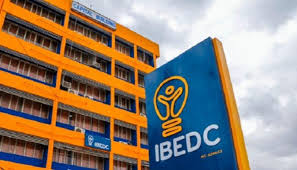Paragraph 1: The Electricity Predicament in Iree, Osun State
The residents of Iree, a town nestled within the Boripe Local Government Area of Osun State, Nigeria, have been grappling with a persistent challenge: erratic electricity supply. For over a year, the community has endured an unreliable power situation, prompting frustration and complaints directed at the Ibadan Electricity Distribution Company (IBEDC), the responsible electricity provider. The residents’ grievances stem from the inadequate and inconsistent supply of electricity, which they claim barely amounts to two hours a day, severely impacting their daily lives and socio-economic activities. This has become a significant source of contention between the community and the IBEDC.
Paragraph 2: IBEDC’s Response and Explanation
In response to the mounting public outcry from Iree residents, the IBEDC, through its Senior Communication Officer for the Osun Region, Kikelomo Owoeye, has offered explanations and assurances. Owoeye acknowledged the community’s concerns regarding the erratic power supply but countered the residents’ claim of receiving only two hours of electricity daily. Instead, she asserted that Iree receives six hours of power supply each day. This discrepancy in reported figures adds another layer to the ongoing disagreement between the residents and the electricity distribution company.
The IBEDC spokesperson attributed the power supply challenges to technical faults within the distribution network serving the community. She emphasized that the company is actively working to rectify the issues and restore a stable power supply to Iree. Owoeye further disclosed that the necessary materials to address the technical faults have been procured and that a resolution is expected within the following week.
Paragraph 3: IBEDC’s Service Bands and Iree’s Classification
Owoeye clarified that Iree falls under the IBEDC’s "Band C" service classification. This categorization mandates a minimum of 12 hours of electricity supply per day. However, due to the aforementioned technical challenges, the community has been receiving only half of the stipulated supply hours. The IBEDC spokesperson apologized for the inconvenience caused by the power supply disruptions and appealed to the residents for patience as the technical team works diligently to improve the situation.
Paragraph 4: Residents’ Demand for Disconnection
The residents of Iree, exasperated by the prolonged power supply problems, have expressed their willingness to be completely disconnected from the electricity grid if the IBEDC cannot guarantee a stable supply. This drastic measure reflects the depth of their frustration and the perceived inadequacy of the current situation. They argue that the current erratic supply, with its unpredictable outages, is more disruptive than having no electricity, as it makes planning and conducting daily activities extremely difficult.
Paragraph 5: Implications of Unreliable Electricity Supply
The unreliable electricity supply in Iree poses significant challenges to the community’s socio-economic well-being. Businesses, particularly small-scale enterprises that rely on electricity to operate, are severely affected, leading to reduced productivity and economic losses. Households also face difficulties with basic needs like lighting, refrigeration, and powering essential appliances. The lack of predictable power supply disrupts daily routines, hinders educational activities, and negatively impacts the overall quality of life in the community.
Paragraph 6: The Need for a Sustainable Solution
The situation in Iree underscores the urgent need for sustainable solutions to address the persistent electricity challenges plaguing many communities in Nigeria. While the IBEDC’s efforts to rectify the technical faults and restore stable power supply are commendable, a long-term strategy is required to ensure consistent and reliable electricity access for all residents. This may involve investments in upgrading the distribution network, exploring alternative energy sources, and improving communication and responsiveness to community needs. Effective dialogue between the IBEDC and the community is also crucial for building trust and ensuring that the concerns of the residents are genuinely addressed. The situation in Iree serves as a microcosm of the broader electricity challenges in the country and highlights the need for collaborative efforts to ensure sustainable and reliable power supply for all.


